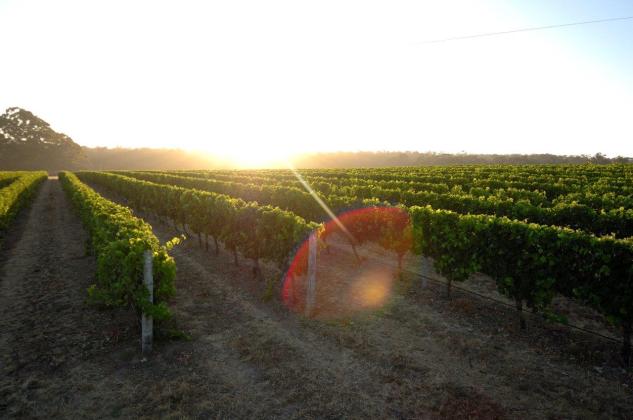By Fergal Gleeson

Rosily Vineyard
Rosily Vineyard are a family owned winery based at Willyabrup whose first plantings were in 1994.
They have built a strong reputation for delivering high quality, value for money wines from their Estate vineyards and have recently introduced a Reserve Cabernet and Chardonnay.

After 2 years of trials and 3 years of conversion their vineyards were certified organic in May 2017. Winemaker Mick Scott is no eco warrior. His reasons for taking Rosily organic are based on a mixture of pragmatic as well as environmental considerations.
“Our vineyards are 20 years old. The productive life of vines is 50 to 60 years. So the question was ‘Will they continue to produce well?’ I wanted to make sure that we were looking after the vineyard as well as we could.”
“There was the hope that the fruit would taste better and more complex. There are some preliminary tests out of California which in blind tastings show that organic and biodynamic wines do taste better.”
“We are a small family run business. There are just two people in the vineyard and me. I grew up in the same street as one of the guys. The amount of chemicals a farmer sees is a million times more than the ordinary person does. No matter how careful you are you can’t avoid exposure to it.”
“Then we were thinking of the future. Large wineries like Voyager were talking about it. The question will be ‘Who is not organic rather than who is?’ You’ll be a dinosaur and forced to change later when you’ll be behind the 8 ball.”

Like Voyager, Mick echoes that farming organically is challenging. Weevils caused extensive crop damage up to 40% over 2 years. Mick feels it’s possible that the vines were weak for the first 3 years after moving to the new organic fertilisation practices as there were lacking the nutrients they’d become accustomed to.
They have since introduced a new system where a cloth is wrapped around the base of the vine which acts as a physical barrier to the weevils.
“Organic wine is more expensive to produce as there is more labour and there is the risk of crop loss. However the picture will become clearer when we’ve been running organically for longer.”
One of Mick’s bug bears are the winemakers who say things like ‘We use organic principles’. “It’s very easy to say that and to use it most of the time. But then they just get out the pesticides when the weevils arrive. That’s why it’s important to understand who has gone through certification.”
Mick also wanted to correct misunderstandings amongst consumers about ‘natural wine’. “Natural wine is often just taking short cuts in the winery with inorganic product!”
His point is that there is no definition about what a natural wine is. Natural winemakers would say that they use minimal intervention in the winery. But so would most winemakers.
Natural wines are not necessarily made organically though consumers might expect them to be.

“There were raised eyebrows six years ago from the industry when I first broached organic. The attitude was ‘why you would bother?’ But there has been a lot of interest from consumers and from the trade since we made the switch.”
“There’s no turning back. At Rosily, we enter a lot of wine shows and we analyse the results data from the shows. We have had the best results ever in the last couple of years since we made the changes in the vineyard.”
More at http://www.rosily.com.au
This is an excerpt from an article that appeared in the winter edition of Your Margaret River Region Magazine
